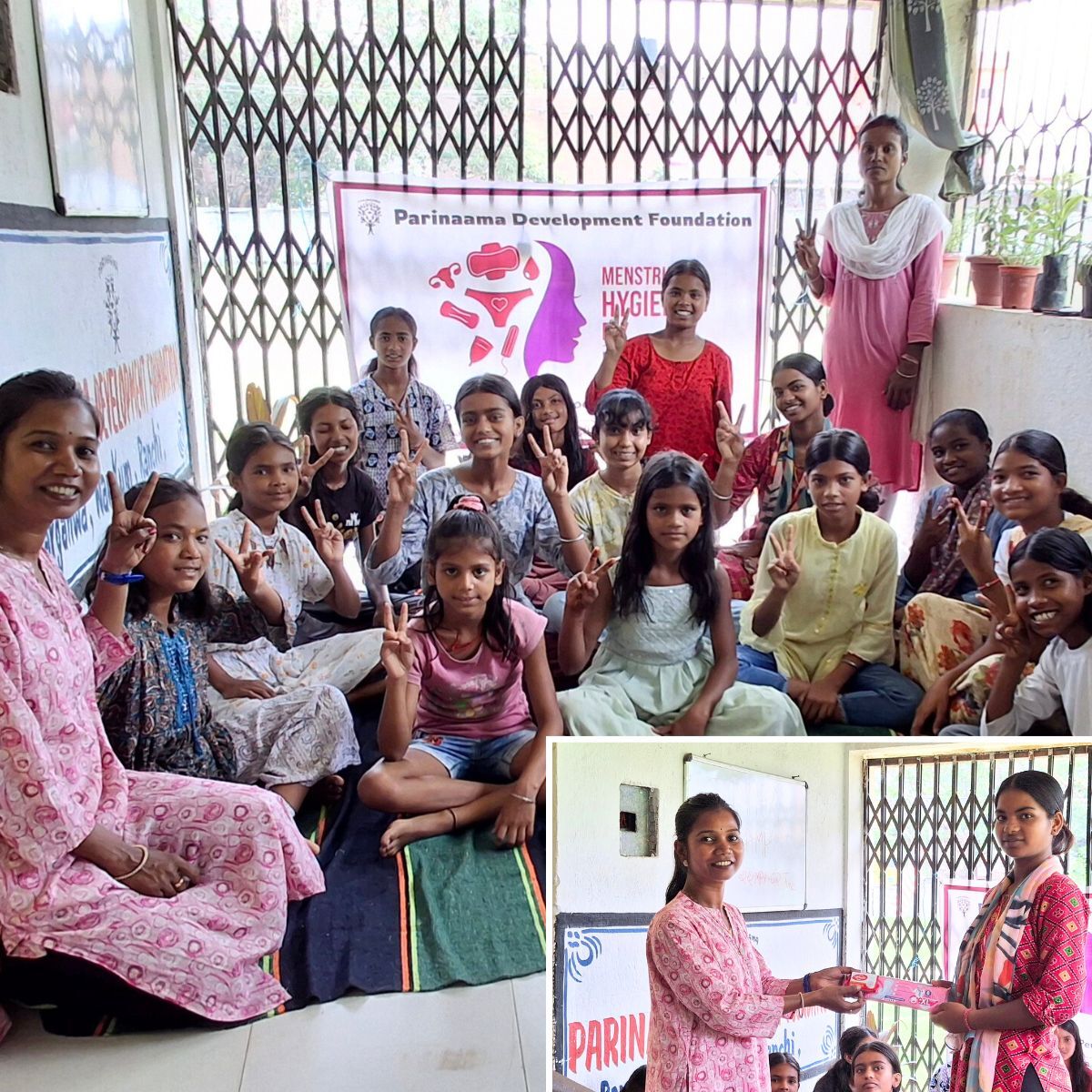
Menstrual Health Is Not a Luxury, It’s a Right
Location: Jharkhand & Ranchi | Focus: Menstrual Health | Girls’ Education | Community Empowerment
In many parts of rural and tribal India, menstruation remains cloaked in shame, silence, and misinformation. Girls are often unprepared, unsupported, and unheard when they first experience their periods. At Parinaama Development Foundation, we believe that periods should not interrupt education, health, or dignity.
Across our learning centers and communities in Jharkhand, we continue to address menstrual health not just as a hygiene issue, but as a matter of equity, agency, and basic human rights.
“I was told not to talk about it.”
“I believed I was unclean.”
“I missed school for days every month.”
These are not isolated quotes they reflect the reality faced by millions of adolescent girls in India. According to national statistics, over 70% of girls are unaware of menstruation until their first period, and 23 million girls drop out of school annually due to inadequate access to menstrual hygiene. The lack of information, supportive environments, and affordable products creates a cycle of exclusion.

While policy changes like the removal of GST on sanitary pads in 2018 were a step forward, adoption remains low only 36% of menstruating women in India use sanitary napkins. Affordability is just one part of the problem. Social stigma, lack of disposal facilities, and limited health education continue to marginalize menstruating girls and women.
In the villages we work in, taboos still restrict girls from entering kitchens or attending religious spaces during their periods. Some girls still hear that they must not touch food or crops, while others are made to isolate themselves during menstruation. These beliefs don’t just exist in rural India they persist in urban homes and schools as well.
At Parinaama, our work aims to replace silence with education. Through school sessions, mother-daughter circles, and community outreach, we:
- Provide adolescent girls and women with accurate information about menstrual health.
- Promote safe hygiene practices, including pad use, disposal, and reusable alternatives.
- Encourage boys and men to engage in the conversation normalizing support and reducing stigma.
- Facilitate access to menstrual products through partnerships and donations.
In one of our recent events in Ranchi, over 40 women and adolescents gathered to talk about menstruation openly. Girls asked questions, shared experiences, and learned about safe disposal practices. A moment that stood out was when young boys shared how they’ve started buying pads for their sisters and mothers a small shift with the power to change mindsets.

The future of menstrual health is evolving. Rural girls and women deserve the same access to innovation as their urban counterparts. From biodegradable pads made of banana fiber, to menstrual cups, to mobile-based education platforms, there’s growing momentum towards choice, sustainability, and dignity.
But access alone is not enough. We must ensure awareness precedes access. Without knowledge, even the best products or policies will not create lasting change.
At Parinaama, we remain grounded in one belief:
Menstruation is natural. The stigma isn’t.
And until that stigma ends, we will continue to speak, support, and stand with every girl and woman.
Support our work in menstrual health and rural education.
contact@parinaama.org
www.parinaama.org/donate

